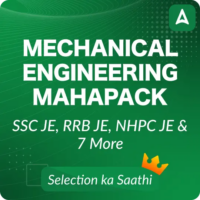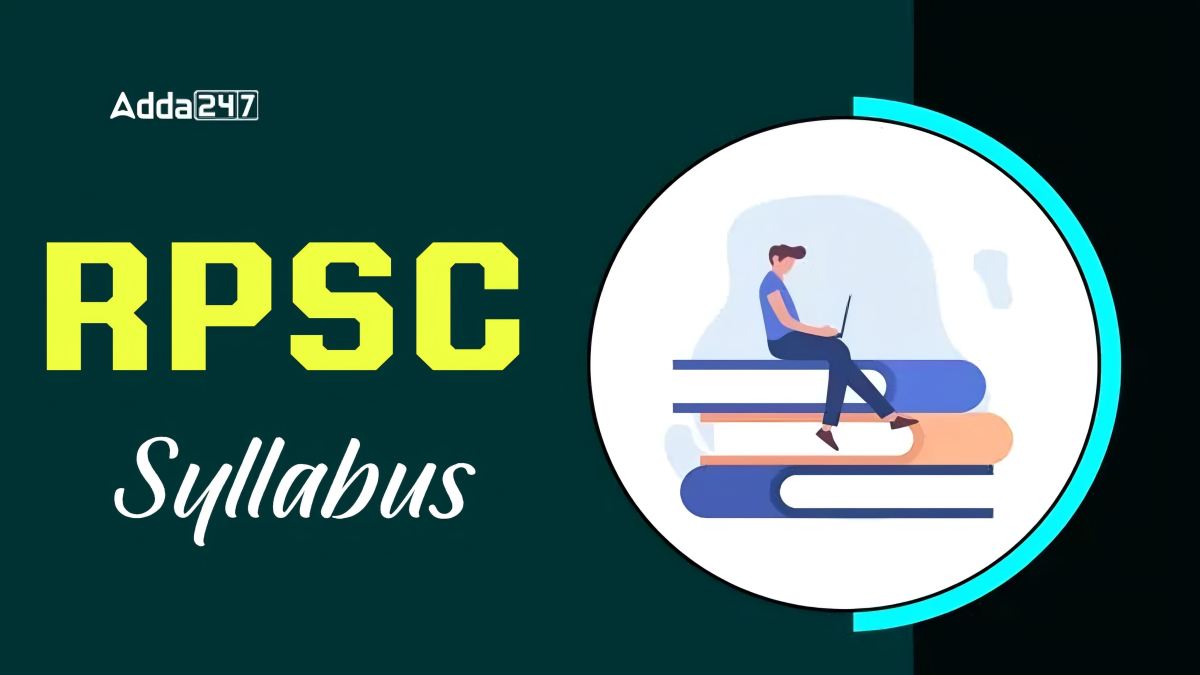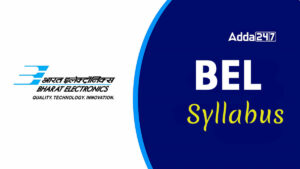Table of Contents
The Rajasthan Public Service Commission (RPSC) has released a detailed advertisement to fill 68 vacancies for the positions of Group Instructor, Surveyor, and Assistant Apprenticeship Advisor (Grade II) in the Skill Planning and Entrepreneurship Department under the Directorate of Technical Education, Jodhpur, Rajasthan. For candidates who are planning to apply for the RPSC Group Instructor Recruitment 2025, it’s important to review the syllabus to create a good study plan. In this article find the complete RPSC Group Instructor Syllabus 2025 which will help you understand the key topics, difficulty level, and exam format.
RPSC Group Instructor Syllabus 2025
The Rajasthan Public Service Commission has notified 68 positions for Group Instructor/Surveyor/Asst. Apprenticeship Advisor (Gr-II). The selection of aspirants will be based on their performance in the written examination. To succeed in the RPSC Group Instructor exam, candidates should start preparing based on the syllabus provided by the authorities. The RPSC Group Instructor Syllabus 2025 is available on the official commission website. Make sure to familiarize yourself with it to understand the important subjects and the difficulty level of the exam.
RPSC Group Instructor Syllabus 2025 – Overview
The key highlights of the RPSC Group Instructor Gr II Syllabus are tabulated in this section:
| RPSC Group Instructor Syllabus 2025 | |
| Name of Organization | Rajasthan Public Service Commission |
| Name of Post | Group Instructor/Surveyor/Asst. Apprenticeship Advisor (Gr-II) |
| RPSC Group Instructor Syllabus and Exam Pattern | Available Now |
| Official Website | rpsc.rajasthan.gov.in |
RPSC Group Instructor Exam Pattern 2025
A total of 150 questions will be asked on different topics from specific subjects. Candidates will be given 2 hours and 30 minutes to complete the exam. Each question will have the same marks, and 1/3 of a mark will be deducted for every wrong answer. If a candidate selects more than one answer for a question, it will be counted as incorrect. The table below shows the detailed exam pattern for the RPSC Group Instructor Exam 2025.
| RPSC Group Instructor Exam Pattern 2025 | |||
| Subject | No. Of Questions | Total Marks | Exam Duration |
| Concerned Subject and Experience (as per the prescribed qualification) | 150 | 150 | 2 hours & 30 minutes |
| Total | 150 | 150 | |
RPSC Group Instructor Syllabus 2025
The RPSC Group Instructor Exam will be conducted online and will consist of 150 questions related to the candidate’s field of study, based on the required qualification level. Candidates need to answer these 150 multiple-choice questions within 2 hours and 30 minutes. To cover the full syllabus, it’s important to have a well-organized study plan and manage time effectively. Using the right strategy and preparation approach can help improve your performance. Below is a detailed, topic-wise syllabus for the RPSC Group Instructor Exam 2025.
- Safety precautions, first aid, fire fighting equipment, treatment of electric shock, burns, and cuts. General purchase procedures, an inspection of material, maintenance of store records, and storekeeping. General principles governing the layout of workshops. Factories Act – 1948, Apprenticeship Act – 1961. Law of parallelogram of forces. Resultant of two or more forces. Basic conditions of equilibrium, law of polygon of forces. Moment and applications of moments. Newton’s laws of motion. Work, power, and energy, work done by a constant force.
- Nature of electricity, E.M.F., voltage, current, work, power, energy, A.C. and D.C. supply. Ohm’s law, Kirchhoff’s laws, General concept of cell and battery & their defects & remedies. Calculation of voltage, current, and power in A.C. circuits. Wire Joints, types of domestic and power wiring, and their applications. A brief idea of conductors, insulators, and semi-conductors. Different types of electrical and electronic components & their symbols. Different types of resistors, capacitors, inductors, switches, and connectors. Digital and analog signals. Basic logic functions and basic logic gates. Decimal, Binary, Octal, and Hexadecimal number system. Basic idea of Audio CD player, Audio conferencing, Digital versatile disk (DVD), Home theatre system, LCD & LED TV, Plasma TV & Blue-ray disc.
- Different types of woods, their uses, seasoning of wood, different types of paintings, and varnishing. Brief description and uses of carpenter’s tools and machines. Lettering, construction of plain geometrical figures (lines, angles, triangles, rhombus, quadrilaterals, polygons, ellipses, parabolas, hyperbola, etc.) orthographic projections. Principles, representation, and construction of different types of scales, graphic scales. Isometric projection of geometrical solids. Basic principles of building planning and building bylaws. Different types of pollutants in the environment, land, soil, water, and noise pollution.
- Name, functions, material, and specifications of common hand tools, holding tools, holding devices, cutting tools, measuring and marking tools used in carpentry, welding, sheet metal, plumbing, and fitting shops. Description of a workbench. Specifications and classification of lathe machines & drilling machines. Common engineering materials like cast iron, mild steel, aluminum, copper, timber, plastic, tin, zinc, lead, and alloys. Elementary knowledge of various heat treatment processes. Care and maintenance of batteries, dynamo, and self-starters of vehicles. Various systems are used in vehicles – Lubrication, cooling, ignition, brakes, and governors.
- Generation, classification, and application of computers. Hardware, software, and firmware. Data types, physical and logical concept of data. Information and its characteristics. Representation of information inside a computer. Awareness of IT ACT 2000.
RPSC Group Instructor Exam 2025 Preparation Tips
To successfully pass the RPSC Group Instructor Exam 2025, you’ll need good strategies, commitment, and the right mindset. Since there are fewer job openings, the competition will be tough. Follow these helpful tips to improve your preparation:
1. Know the Syllabus and Exam Pattern: Make sure you fully understand the syllabus and the exam structure. Focus on the important topics to increase your overall score. Write down the key subjects and plan your study time based on that.
2. Manage Your Time Well: Time management is very important when studying for an exam. Use your time wisely by setting aside enough hours for studying and practice. Stay consistent and avoid distractions.
3. Strengthen the Basics: Focus on mastering the basic concepts to do better in the exam. Make short notes of important concepts and formulas so you can quickly review the syllabus. Spend more time on topics that carry more marks.
4. Practice Previous Year Papers: Solving past papers will help you understand the main areas to focus on. These papers will also give you a better idea of the exam syllabus and format.
5. Evaluate Your Performance: Take mock tests and practice sets to check how well you’re doing. This will help you see your strengths and weaknesses, allowing you to work on areas that need improvement.
6. Stay Positive and Motivated: Keep a positive attitude and stay motivated while preparing. Believe in yourself and don’t lose confidence, as this will help you perform well in the exam.




 TNPSC CTS Syllabus 2025, Subject Wise Sy...
TNPSC CTS Syllabus 2025, Subject Wise Sy...
 BEL Probationary Engineer Syllabus 2025,...
BEL Probationary Engineer Syllabus 2025,...
 BARC Electrical Engineering Syllabus 202...
BARC Electrical Engineering Syllabus 202...





